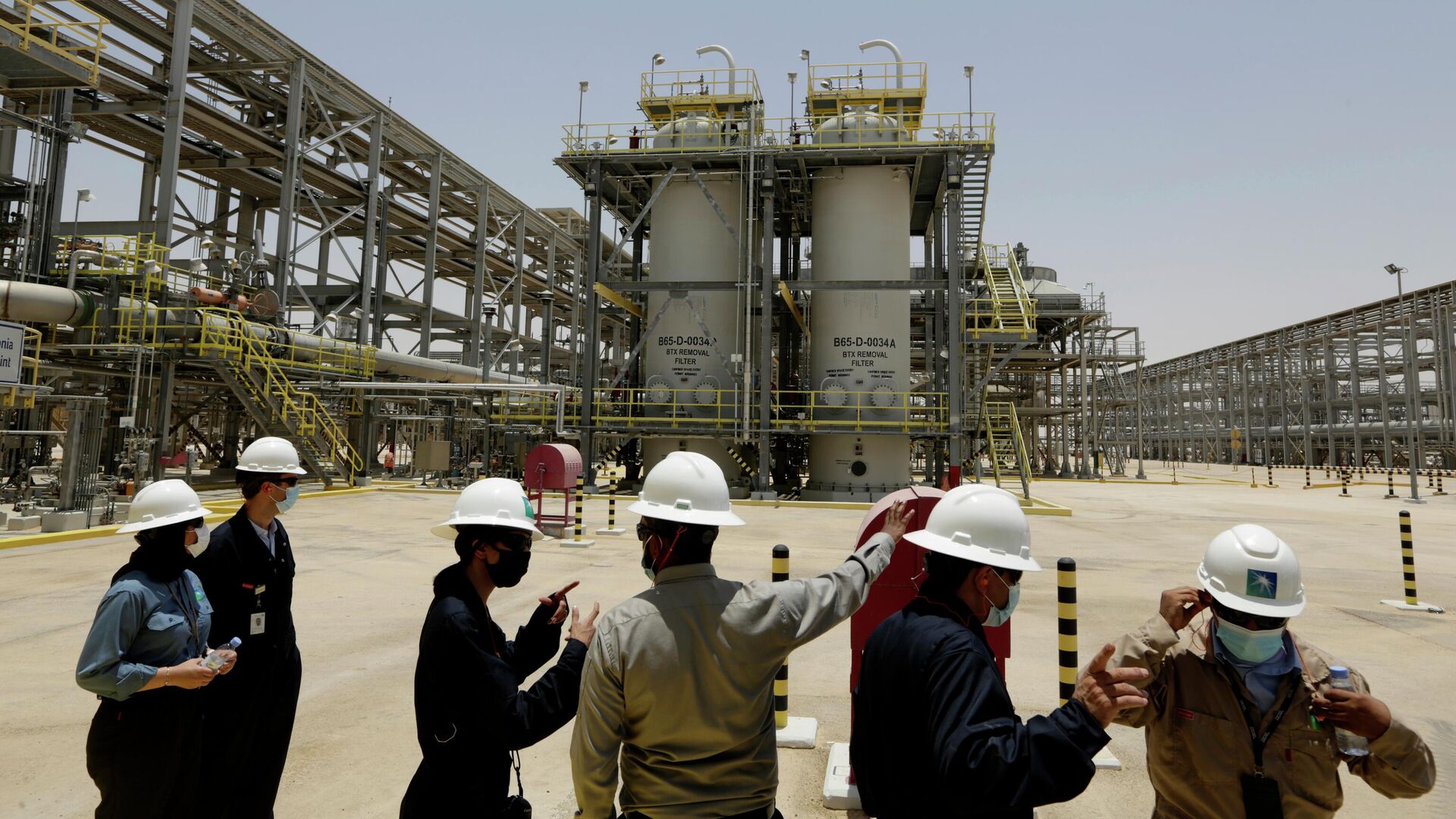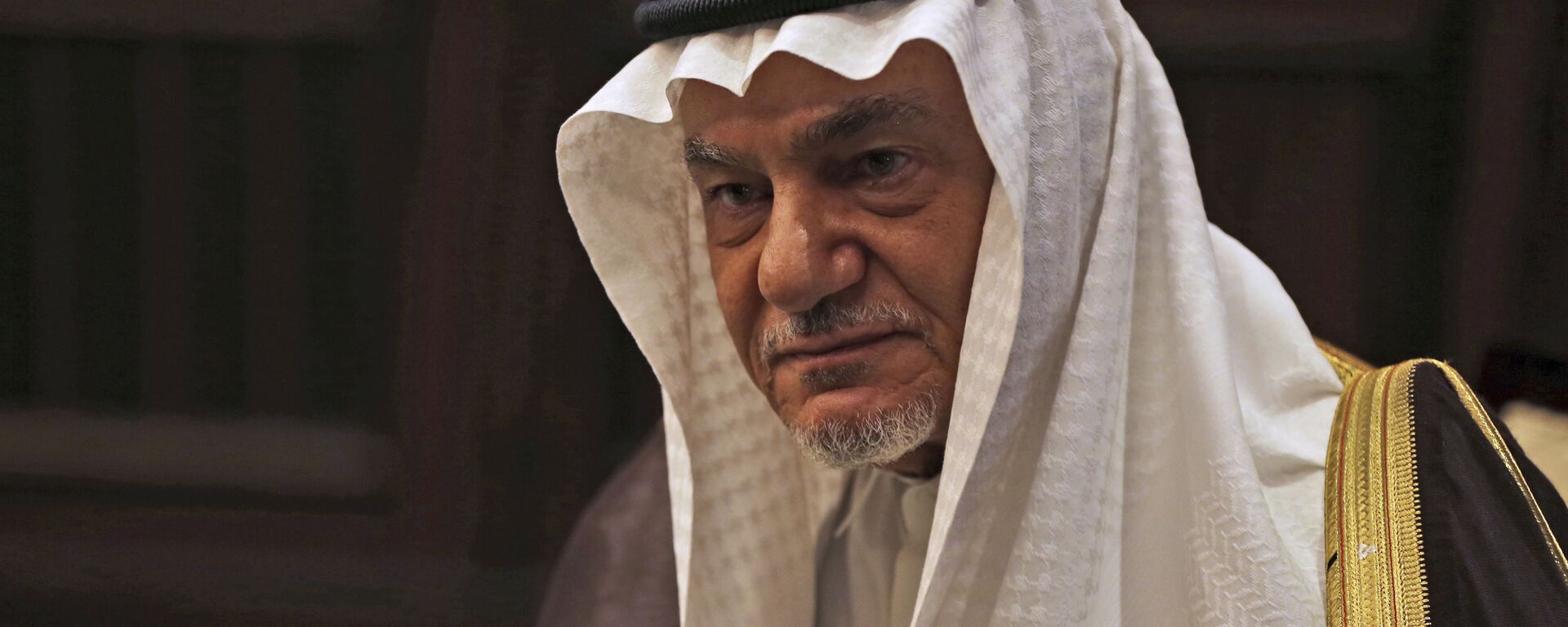https://sputnikglobe.com/20220507/opec-wont-boost-oil-production-to-help-the-west-contain-rising-energy-prices---report-1095339424.html
OPEC Won't Boost Oil Production to Help the West Contain Rising Energy Prices - Report
OPEC Won't Boost Oil Production to Help the West Contain Rising Energy Prices - Report
Sputnik International
The OPEC countries, in particular Saudi Arabia, are not interested in increasing oil production since in that case, crude prices will fall. On the other hand... 07.05.2022, Sputnik International
2022-05-07T23:32+0000
2022-05-07T23:32+0000
2022-05-08T00:50+0000
saudi arabia
us
biden administration
oil prices
oil production
https://cdn1.img.sputnikglobe.com/img/07e6/05/07/1095339398_0:320:3072:2048_1920x0_80_0_0_d6f476949d155d39d588d5ec014b4faa.jpg
OPEC does not intend to increase oil production to help Western countries mitigate the consequences of rising energy prices caused by Western sanctions against the Russian Federation, the Telegraph reports, citing sources.Among the reasons the newspaper cites Russia's membership in OPEC+, in which it "has a kind of voice," and the cooling of relations between Riyadh and Washington under the Biden administration among the reasons for the exporters' reluctance to boost production.Earlier this week, the OPEC+ alliance decided to stick to the oil output cut deal and increase production only by the planned 432,000 barrels per day in June. The announcement came as Europe is inching toward a full ban of Russian energy products as part of the Western sanctions campaign launched against Moscow over its special military operation in Ukraine.The course to reject oil and gas supplies from Russia is actively supported by the United States, which calls on alternative producers to step up. However, according to OPEC Secretary General Mohammad Barkindo, it is not possible for other oil producers in OPEC+ to replace Russian exports of more than 7 million barrels per day.Tensions between the United States and Saudi Arabia intensified after Russia’s launch of the special operation. There is a risk of Saudi Arabia aligning itself more closely with US competitors such as Russia and China, or remaining neutral on key issues such as the Ukrainian crisis, the Wall Street Journal reported this week.In late March, both Saudi Crown Prince Mohammed bin Salman and UAE Sheikh Mohammed bin Zayed al Nahyan declined to speak with the US president on skyrocketing crude prices, but took phone calls from Russian President Vladimir Putin.
https://sputnikglobe.com/20220502/saudi-prince-reveals-why-kingdom-felt-let-down-by-biden-says-us-to-blame-for-oil-price-crunch-1095208007.html
saudi arabia
Sputnik International
feedback@sputniknews.com
+74956456601
MIA „Rossiya Segodnya“
2022
Sputnik International
feedback@sputniknews.com
+74956456601
MIA „Rossiya Segodnya“
News
en_EN
Sputnik International
feedback@sputniknews.com
+74956456601
MIA „Rossiya Segodnya“
Sputnik International
feedback@sputniknews.com
+74956456601
MIA „Rossiya Segodnya“
saudi arabia, us, biden administration, oil prices, oil production
saudi arabia, us, biden administration, oil prices, oil production
OPEC Won't Boost Oil Production to Help the West Contain Rising Energy Prices - Report
23:32 GMT 07.05.2022 (Updated: 00:50 GMT 08.05.2022) The OPEC countries, in particular Saudi Arabia, are not interested in increasing oil production since in that case, crude prices will fall. On the other hand, high prices may provoke a global recession in the long-term, leading to a drop in energy demand and low revenues for oil producers as a result.
OPEC does not intend to increase oil production to help Western countries mitigate the consequences of rising energy prices caused by Western sanctions against the Russian Federation, the Telegraph reports, citing sources.
Among the reasons the newspaper cites Russia's membership in OPEC+, in which it "has a kind of voice," and the cooling of relations between Riyadh and Washington under the Biden administration among the reasons for the exporters' reluctance to boost production.
In particular, The Telegraph claims that Biden considers Saudi Crown Prince an "outcast" following the murder of journalist Jamal Khashoggi, which US intelligence has attributed to the Saudi leadership, and Riyadh, in turn, is against Washigton's desire to revive the nuclear agreement with Iran — Saudi Arabia's "religious and regional enemy."
Earlier this week, the OPEC+ alliance decided to stick to the oil output cut deal and increase production only by the planned 432,000 barrels per day in June. The announcement came as Europe is inching toward a full ban of Russian energy products as part of the Western sanctions campaign launched against Moscow over its special military operation in Ukraine.
The course to reject oil and gas supplies from Russia is actively
supported by the United States, which calls on alternative producers to step up. However, according to OPEC Secretary General Mohammad Barkindo, it is not possible for other oil producers in OPEC+ to replace Russian exports of more than 7 million barrels per day.
Tensions between the United States and Saudi Arabia intensified after Russia’s launch of the special operation. There is a risk of Saudi Arabia
aligning itself more closely with US competitors such as Russia and China, or remaining neutral on key issues such as the Ukrainian crisis,
the Wall Street Journal reported this week.
In late March, both Saudi Crown Prince Mohammed bin Salman and UAE Sheikh Mohammed bin Zayed al Nahyan
declined to speak with the US president on skyrocketing crude prices, but took phone calls from Russian President Vladimir Putin.


